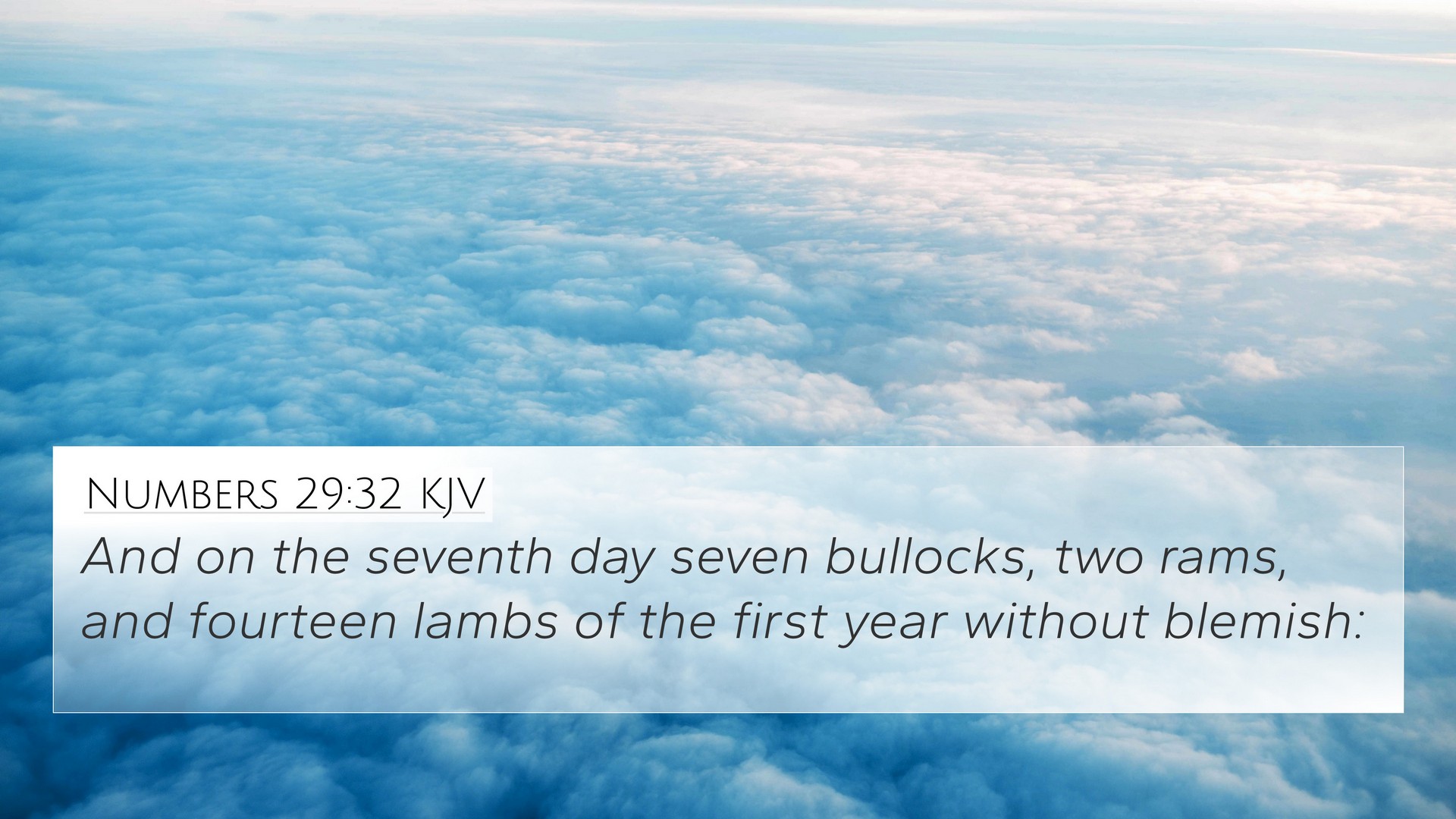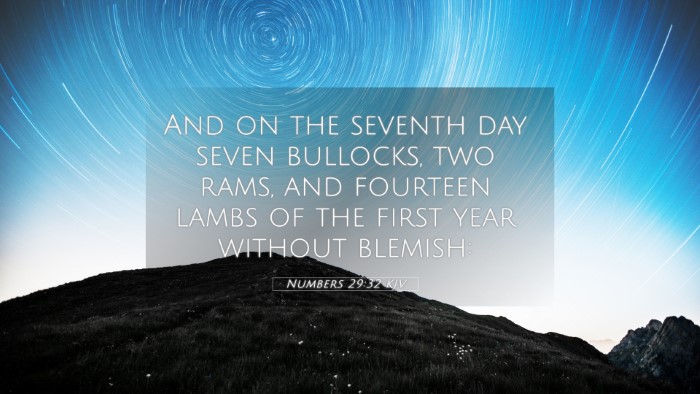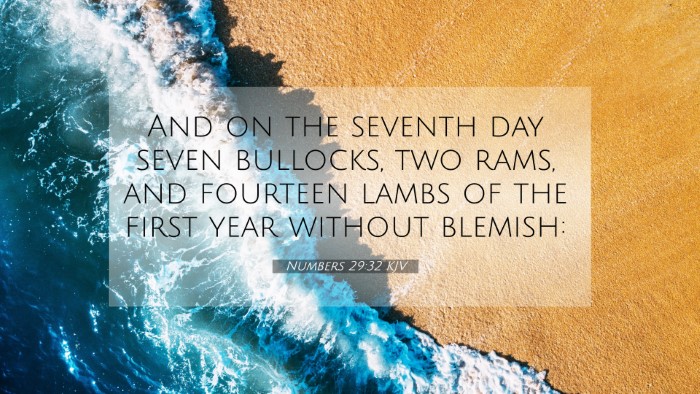The Meaning of Numbers 29:32
Numbers 29:32 embodies a significant moment within the Israelite religious observance and serves as a reminder of the importance of ritual and worship in the life of the community. This verse states: "And on the fifth day, nine bullocks, two rams, and fourteen lambs of the first year without spot; and their meat offering and their drink offerings for the bullocks, for the rams, and for their lambs shall be according to their number, after the manner." This instruction is part of a larger narrative concerning the Feast of Tabernacles, illustrating the meticulous nature of sacrificial offerings prescribed in the Mosaic Law.
Context and Interpretation
The preceding chapters in Numbers detail the various festivals and offerings that were to be made by the Israelites, emphasizing the need for order and reverence in their worship practices. Public domain commentaries help to elucidate the meaning and significance of this verse through detailed analysis.
-
Matthew Henry’s Commentary:
Henry outlines the requirement for offerings during the Feast of Tabernacles as a means to express gratitude and adherence to God’s commands. He emphasizes that these offerings were not only a duty but an opportunity for the community to come together in worship and thankfulness.
-
Albert Barnes’ Notes:
Barnes notes that the precision in the offerings reflects God’s desire for His people to approach Him with a heart of sincerity and commitment. The specific numbers and types of sacrifices show the importance placed on following God’s ordinances exactly as they were given.
-
Adam Clarke’s Commentary:
Clarke delves into the theological symbolism behind the sacrifices. He suggests that each animal represents aspects of communion with God and serves to foreshadow the ultimate sacrifice of Christ, linking the Old Testament sacrificial system to the New Testament promise of redemption.
Bible Verse Cross-References
Understanding Numbers 29:32 can be enriched through cross-references to other biblical verses that share thematic or contextual similarities. Here are some related verses that highlight connections within the Scriptures:
- Leviticus 23:36 - Instructions regarding holy days and celebrations.
- Exodus 12:26-27 - The Passover and the significance of remembering God’s acts.
- Deuteronomy 16:14 - Celebrating the Feast of Tabernacles with joy.
- Psalm 50:14-15 - Offering thanks and fulfilling vows to God.
- Hebrews 10:23-25 - Encouragement to hold fast to faith with communal worship.
- Isaiah 1:11-14 - God’s disdain for empty rituals without true devotion.
- Romans 12:1 - Presenting ourselves as living sacrifices to God.
Thematic Connections Between Bible Verses
Thematic connections in the Bible can deepen one’s understanding of worship and sacrifice throughout both the Old and New Testaments. In Numbers 29:32, the sacrificial requirements reflect deeper themes of holiness, obedience, and community worship that resonate throughout Scripture.
-
Links to Worship: The continual emphasis on sacrifices reflects humanity’s need to connect with the divine, a theme that resonates throughout the Psalms and prophetic literature.
-
Foreshadowing Christ: The offerings made during the festivals anticipate the ultimate sacrifice of Christ, highlighting the continuity of God’s redemptive plan.
-
Ritual and Community: The collective nature of these offerings reinforces the notion that worship is not merely individual but a corporate expression of faith.
Practical Application and Study Tools
When engaging with Numbers 29:32 and similar verses, utilizing tools for Bible cross-referencing can be invaluable. Understanding how various scriptures interlink allows for deeper study and insight.
- Use a Bible Concordance to find themes and connections across texts.
- Engage in Cross-reference Bible Study to explore how different books and chapters relate.
- Explore Bible Reference Resources for comprehensive thematic analysis.
- Practice Cross-referencing Bible Study Methods to enhance your scriptural understanding.
Conclusion
In conclusion, Numbers 29:32 encapsulates vital aspects of the Israelite experience with God through careful ritual and community participation. By exploring the verse through various commentaries and cross-references, individuals can gain profound insights into the nature of worship and its significance in both historical and contemporary contexts. This interconnected web of scripture emphasizes the importance of understanding the Bible as an integrated narrative that reflects God’s unchanging character and purpose across time.


